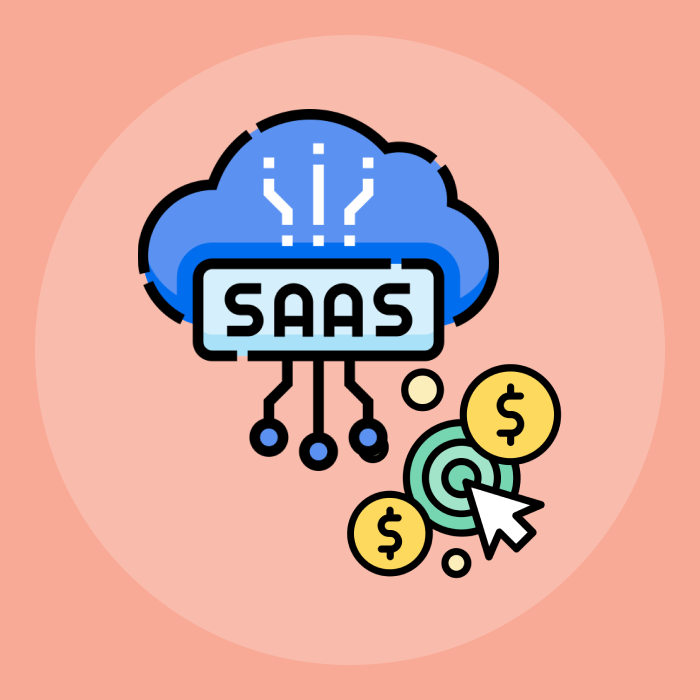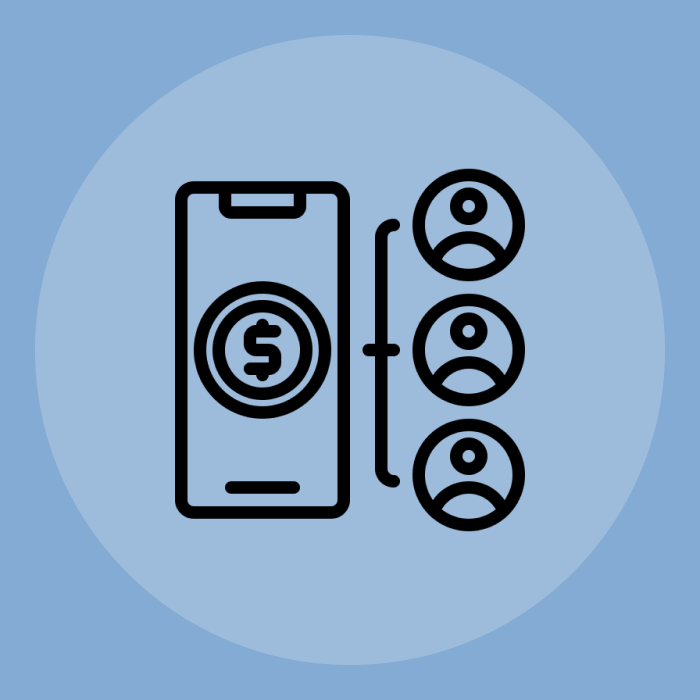Explore the significance of marketing automation tools, applicable across industries, including SaaS PPC campaigns, and find our top 10 recommendations in this article for professionals like campaign managers and salespeople.
Whether you're a campaign manager or a salesperson, you can benefit from various marketing automation tools. You can use these tools for any industry or campaign, including SaaS PPC marketing. In this article, we'll explain why these programs are so important and then list the top 10 PPC tools that everyone can benefit from.
Nowadays, it's hard to imagine a successful marketing brand that doesn't use software automation. According to Oracle, these tools can improve the quality of your leads by 80% and increase conversions by 75%.
Marketing automation is widespread in every field, but especially SaaS. Given that this is one of the most profitable industries, the brands are looking to generate any possible competitive advantage. By combining innovative software design with intelligent marketing practices, the best SaaS brands can grow by more than 100% annually.
Here are a few benefits you can experience by using marketing automation for your SaaS marketing campaign:
- Performance marketing tools ensure that you make rational, calculated decisions. The best software works in real time, giving you access to your current organic traffic data, user engagement, ad conversions, and so on.
- Modern platforms, like Google Analytics 4, also have predictive functionality. They can assess your future performance based on the input, a type of preemptive A/B testing.
- Unlike your employees, apps are rarely wrong. By relying on marketing automation, you can eliminate human errors.
- The software can also cut down time and resources for performing specific processes.
There are barely any drawbacks to using performance marketing tools aside from their price. They can become an integral part of your SaaS PPC strategy, but you can also use them for search engine optimization, social media, and other processes and channels.
The success of SaaS advertising campaigns hinges on the tool that you're using. As you make most of your decisions based on their insights, you must buy software with reliable, timely data. In the following section, we'll review the top 10 tools for your SaaS marketing campaigns:
1. Google Ads Keyword Planner
It's hard to imagine any PPC campaigns, whether for SaaS or some other product, that don't rely on Google Ads Keyword Planner. As the name implies, this free app allows you to discover lucrative keywords for your paid advertisement campaign.
The tool can pump out numerous suggestions for your seed keyword, allowing you to find relevant phrases for your business. Once the software generates a list of ideas, you can check out average monthly searches, competition, ad impression share, and low and high bids. Aside from these metrics, you also analyze ad group suggestions and local results.
2. Google Ads Editor
Ads Editor is another tool within the more extensive Google Ads suite. While the Keyword Planner is vital during the research phases, the Editor is crucial for management and control. Within the dash, you get data about each ad you've previously posted, allowing you to monitor click-through rate, clicks, and other performance metrics.
Furthermore, Google Ads Editor gives you a graphic depiction of how your posts performed over time. You can check the results for specific periods and compare SaaS PPC ads to each other. The tool lets you tweak campaigns by adjusting bids, editing text, or adding new keywords. You can make bulk changes, a significant time-saver during more extensive campaigns.
3. Google Analytics
Google Analytics is the best tool for measuring buyer's journey and website engagement. Aside from paid channels, it tracks direct, social media, and organic traffic, making it a one-stop shop for all your marketing needs.
The program tracks metrics like new and recurring users, sessions, pageviews, number of sessions per user, bounce rate, and session duration. You also have nifty features such as cohort analysis and visitors' lifetime value. Like Google Ads Editors and Keyword Planner, this program shows data for different time ranges.
Google Analytics is also fantastic to learn more about user intent. It gives you a plethora of demographic data while also showing where the majority of users come from. Predictive AI functionality is one of its newer features tailor-made for PPC advertising, analyzing the potential impact of your posts.
4. SEMRush
As a marketer, you would be foolish not to give SEMRush a chance. This comprehensive suite can tackle various aspects of your promotional activity, allowing you to research keywords, analyze traffic and links, and perform SMM and PPC.
Speaking of its paid ad features, SEMRush can assist you by finding the optimal phrases for your campaigns. It also has an excellent competitive analysis functionality that tracks down all paid posts opposing companies use. SEMRush shines for large companies with massive budgets, allowing you to fine-tune your spending and properly reroute resources.
5. Optimizely
Optimizely is a very unique tool in this regard. The platform allows you to improve various aspects of your digital marketing and streamline your A/B testing. It has fantastic integrations, including Google Analytics, Microsoft 365, and a few other vital marketing apps.
The SaaS PPC tool can work on every level of your campaign. First of all, it allows you to improve your copies and plan and schedule your content marketing. Many people subscribe to this software just so they can use their testing feature, which shows how people interact with specific posts and your website.
6. Microsoft Advertising
Microsoft Advertising is a vital platform for marketers that focus on Bing Ads. Aside from this search engine, the software works great with Yahoo! and MSN. While somewhat of a niche tool, it can significantly improve the performance of marketers who think outside the box.
If you're used to Google Ads, you probably won't have any trouble with this software. The app analyzes your performance over time, showing metrics like ad spend, budget, CTR, average CPC, etc. You can use it for ad groups and extensions, and it also works well for researching and tracking keywords.
7. Wordstream
Wordstream is another platform that focuses on Google Ad campaigns. The company offers a free tool called Google Ads Performance Grader, which allows you to analyze your PPC strategy and introduce the necessary improvements quickly.
Similar to Google Ads, the software assesses your performance through quality score. That way, you can determine if you're targeting the wrong keywords or need to improve your ad text. There's also a nifty feature called impression share, showing you how much impression you get for your posts.
Most notably, this small tool is perfect for assessing resource usage. It shows how much money you've wasted on ineffective strategies and how you compare to the industry average. There's also an account activity metric that shows how often you modify your campaigns.
8. Teikametrics
Teikametrics is a platform tailor-made for large shopping sites. You can use it to create and manage ads on Amazon, Target, and Walmart, making it one of the more unique software in the PPC niche. The program relies on algorithmic bidding and automated keyword actions, allowing you to simplify and maximize your campaigns.
All the data is updated in real-time, allowing users to properly track metrics like total sales, estimated gross profits, units sold, and so on. Aside from monitoring profitability and sales numbers, Teikametrics offers various marketing KPIs like ad spend and conversion rates. Perhaps its best feature is the share of sales, which shows you the percentage of units you sold compared to the total.
9. Unbounce
Unbounce is a software that specializes in improving your landing pages, making it an invaluable tool for search engine and social media ads. By tweaking various elements on your website, you can convert incoming users at a much higher clip, thus maximizing ad efficiency.
Aside from landing pages, Unbounce can also assist with sticky bars and pop-ups, vital for funneling website visitors. The software has also added AI text generators to help you create a perfect ad copy. Once you subscribe to the tool, you'll also gain access to a massive template library, allowing you to choose an ideal design for your site.
10. Canva
Most people won't even think about Canva when discussing SaaS PPC marketing. Nevertheless, this incredible tool can provide a significant boon to your visual elements. It's the optimal choice when designing and resizing display ads and other types of content.
The great thing about Canva is that you can use it for all channels and formats, from social media to banners. As if that wasn't enough, you also gain access to a massive library of templates that will make your advertising journey that much easier.
Conclusion
Implementing this software into your daily routine allows you to create more effective campaigns and maximize your ad spend. Each tool has a specific purpose so you can use several of them for your marketing strategy. Hopefully, this article has shed some light on the most popular paid ads software and how it can help you achieve better results.
Subscribe to weekly updates
You’ll also receive some of our best posts today



